Prophet Muhammad (ﷺ) in the Texts of Indian Non-Muslim Intellectuals
Last February the Department of Islamic Studies of Maulana Azad National Urdu University (MANU), Hyderabad called for a national seminar in collaboration with New Delhi’s Islamic Fiqh Academy under the theme ‘Contributions of Indian Non-Muslims to Islamic Studies’. Numerous revolutionary insights emerged from its concept notes, encompassing a wide range of literary forms such as poems, biographies, essays, translations, comparative dialogues, as well as in-depth studies on Islam. These scholarly pursuits were predominantly conducted by Indian individuals who were not adherents of the Muslim faith, with a notable focus on Hindus. Remarkably, the major share of all their concentrations have been primarily centered on the figurehead of Islam, as Muslims assert, the last messenger of the God and Prophet to the whole world, Muhammad (ﷺ).
The term 'Hamd,' which translates to 'praise,' serves as the foundational root (masdar) for both 'Muhammad,' signifying 'the most praiseworthy,' and 'Ahmad,' indicating 'one who praises the most.' These names are intricately connected to the divine, reflecting the reciprocal relationship with the Almighty Allah.[1] Considering the numerous heartfelt expressions of admiration devoted to the Prophet (ﷺ), it's understandable how people, free from negative influences, continue to find joy in extolling the most revered figure. India, like many other places, is no exception, where a substantial number of non-Muslim intellectuals have offered heartfelt praises to the Messenger of Peace, Prophet Muhammad (ﷺ).
Vedic Analysis
The first name comes from Sanskritik Prayag University, Research Scholar Pundit Dr. Ved Prakash Upadhyay (b. 1947). His masterpiece Hindi work ‘Kalki Avatar aour Muhammad Saheb’ consisting two books was published by Saraswat Vedanta Prakash Sangghha of Allahabad in 1969. The author affirms the exploration of potential interpretations and depictions of Muhammad (ﷺ) in Vedas, Puranas, Mahabharata, and other Hindu scriptures, supported by relevant textual evidence.[2] He examined several qualities and conditions of Hindu mythological figures like Kalki Avatar with comparative analogies and asserted their similarity with Prophet Muahmmad (ﷺ).
For example, in first book ‘Narashangsa and the Antim Rishi’ (translated), he claimed that Narashangsa (the Praised Man) is synonymous to Muahmmad (the Highly Praised) not only in etymological meaning but also practical aspects as the former would have twelve wives the latter had and so on. He also related ‘Antim Rishi’ to ‘Khatamun Nabi’ both denoting the ultimate sage or prophet which is none other than the (ﷺ).[3] Similar is the second book where he describes ‘Kalki Avatar and Muhammad’ in detail with the same methodology.[4] Several other Hindu scholars have undertaken similar works on the Prophet (ﷺ) with their Hindu scriptural analysis. However, Muslim scholars have different opinions regarding the notion of mentions of prophet Muhammad (ﷺ) in Hindu scriptures based on their authenticity and historical fabrications. Subsequently, this book, along with an additional section titled 'Muhammad in the Vedas and Mahabharata,' was translated into Bengali by the linguist Asitkumar Bandyopadhyay (1920-2003). Later, Muhammad Alamgir combined all books with their English translations into a single edition titled ‘Muhammad in the Hindu Scriptures’ which was published in 2011 by AS Noordeen (ASN), Malaysia.
Biographical Sketches
This tapestry of Indian non-Muslims on prophet Muhammad (ﷺ) also includes some beautiful biographies and life events. Among them, the great admirer of interfaith unity Pandit Sunder Lal’s work ‘Hazrat Muhammad aur Islam’. Originally published in Hindi by Vishwa Amarnath, Vishwani Press, Allahabad in 1941, the book was translated into Urdu and other languages. The 224-page book contained the pre-prophetic conditions of Arab, comprehensive biography of the Prophet, basic teachings of Islam and viewpoints from the West in detail.[5] Another important work on the life of Prophet Muhammad (ﷺ) in this series is Swami Laxman Prasad’s ‘Arab Ka Chand’ (The Moon of Arab), published by Maktaba Tamir-e-Insaniyat, 1989.[6]
Lines of Love
Poetry, often regarded as a medium for expressing deep emotions, has woven thousands of verses infused with the pulsating rhythms of love and affection dedicated to the Prophet Muhammad (ﷺ). This profound sentiment of love is not confined to Muslim poets alone; it resonates through the poetic verses of numerous non-Muslims in India. The concept note of the conference enumerates the names of several poets who have immortalized their admiration for the Prophet (peace be upon him) in their lyrical compositions. Among these luminaries are Chowdhury Dillu Ram Kausari, Maharaja Kishan Prasad, Munshi Shankar Lal Saki, Manohar Lal Bihar, Jyotiba Phule, and Jagan Nath Azad.
To experience one of them, Chowdhury Dillu Ram composed more than forty poems (na't) in praise of the Prophet Muhammad (ﷺ) under the pen-name Kausari which were published in an anthology titled ‘Hindu ki Naat’ published by Khaja Hasan Nizami, 1937. This Hindu man from Punjab dared to challenge the British conspiracy of communalism by singing the song of composite culture.[7] His one couplet goes this way:
“Kuch ishq e Muhammad mein nahi shart e Musulman!
Hai Kausari Hindu bhi talabgaar e Muhammad!
Allah re! kyaa raunaq e bazaar e Muhammad Ke Mabood e Jahan bhi hai kharidaar e Muhammad!”
Being a Muslim is not a condition for loving Muhammad! Kausari, the Hindu, is also a seeker of Muhammad! By Allah! How delightful is the bazaar of Muhammad. For the Lord of the Worlds is also a buyer of Muhammad!
Imagine a traveler lost in the scorching desert, holding a precious source of sustenance in his hand. Unable to wait, Dillu Ram Kausari journeyed to Madina, where he stood in the presence of the Prophet (ﷺ). Overwhelmed by this encounter, he embraced Islam and transformed into Kausar Ali Kausar, forever changed by the experience. This remarkable transformation reflects the profound impact the Prophet had on people's lives.[8]
Praises by Indian Figures
The list of Indian non-Muslim great men in praise of Prophet Muhammad (ﷺ) also includes Father of the Nation Mohandas Karamchand Gandhi. He was well impressed by the personality of the Prophet (ﷺ). In his speech at a function at Ahmedabad in 1934, he said (it was also reported in the July edition of his Harijan Bandhu):
“From my reading I received the impression that the Prophet was a seeker of Truth. He was god-fearing. In this I know I am not telling you anything new. I am only describing to you how I was impressed by his life.”[9]
In the Young India edition (1924), he once wrote, “...I am more certain than ever that Islam did not take its place in the way of life of the people in those days by the sword. The spread of Islam was due to the Prophet’s (ﷺ) steadfast simplicity, self-importance, careful consideration of the future, extreme self-sacrifice for friends and followers, his unwavering courage, fearlessness, infinite faith in God and his responsibilities.”[10] Similar viewpoints were expressed by Sarojini Naidu, Annie Besant, Dayan Chand Sharma and other personalities from the independence period that always reverberate in speeches and writings of scholars mentioning the Prophet of Islam (ﷺ).
To close this tapestry, but not the last, Professor K.S Ramakrishna Rao, the author of acclaimed work ‘Muhammad: The Prophet of Islam’, addressed Prophet (ﷺ) as the ‘perfect ideal of human life' and said: “The personality of Muhammad (ﷺ), is most difficult to get into the whole truth of it. Only a glimpse of it can I catch. What a dramatic succession of picturesque scenes! There is Muhammad (ﷺ), the Prophet. There is Muhammad (ﷺ), the Warrior, Muhammad (ﷺ), the Businessman; Muhammad (ﷺ), the Statesman; Muhammad (ﷺ), the Orator; Muhammad (ﷺ), the Reformer; Muhammad (ﷺ), the Protector of Slaves; Muhammad (ﷺ), the Emancipator of Women; Muhammad (ﷺ), the Judge; Muhammad (ﷺ), the Saint. All in all these magnificent roles, in all these departments of human activities, he is like a hero.”[11]
Final Appeal
In recent times, India, the world's largest democracy, has been experiencing heightened emotions of ultra-nationalism, violent religiosity and political majoritarianism, threatening its unified diversity and peaceful coexistence. Consequently, international watchdogs have designated the country as a 'Country of Particular Concern' in terms of religious freedom.[12] India's history is marked by a duality, with significant contributions to intelligence and science on one hand, and instances of exploitation and deprivation on the other. At this juncture, it's crucial to ponder the path the nation is taking. As a remedy and source of solace for these ongoing challenges, it becomes imperative to revisit the interfaith and cross-cultural dialogues, rekindle them, and steer the nation towards comprehensive harmony. Ultimately, embracing the models of the Prophet Muhammad (ﷺ) in social, political and economic aspects of life can lead India towards peace and prosperity.
Key References
al-Jazuli, Muhammad. n.d. “The Blessed Names of The Prophet ﷺ.” Dala'il Al Khayrat.
International Islamic University Malaysia. n.d. “You Must Know This Man - Muhammad (The Ideal Prophet).” Accessed September 22, 2023. https://www.iium.edu.my/deed/articles/muhammad.html.
Lal, Sundar. 1941. Hazrat Muhammad aur Islam. Allahabad: Vishwani Press.
Naeem, Hafiz M. 2022. “Prophet Muhammad (PBUH) as the Final Messenger: A Critical Analysis of Pandit Ved Prakash Upaddhya's Point of View.” Al-Idrak 2.
Prasad, Swami L. 1989. Arab ka Chand. N.p.: Maktaba Tamir-e-Insaniyat.
Salim, Saquib. 2017. “Dillu Ram Kausari: The Hindu poet who composed eulogies for the Prophet Muhammad.” Firstpost, December 1, 2017.
Upadhyay, Ved P. 2011. Muhammad In The Hindu Scriptures. Kuala Lumpur: A.S Noordeen (ASN).
References
[1] al-Jazuli, Muhammad. n.d. “The Blessed Names of The Prophet ﷺ.” Dala'il al-Khayrat. Accessed September 21, 2023. https://www.dalailalkhayrat.com/blogs.php?blog=blessed-names-prophet.
[2] Naeem, Hafiz M. 2022. “Prophet Muhammad (PBUH) as the Final Messenger: A Critical Analysis of Pandit Ved Prakash Upaddhya's Point of View.” Al-Idrak 2.
[3] Upadhyay, Ved P. 2011. Muhammad In The Hindu Scriptures. Kuala Lumpur: A.S Noordeen (ASN). P. 3-36.
[4] According to Hindu culture Kalki Avatar, who would arrive in kali-yug and would be recognized as the ‘Last Avatar’ of twenty-four avatars. Ved Prakash investigates mentions of Kalki Avatar and brings his head to foot information that looks like Muhammad. Read its full review by the author is his personal blog: https://www.thehadara.com/2018/07/title-muhammad-in-hindu-scriptures.html
[5] Lal, Sundar. 1941. Hazrat Muhammad aur Islam. Allahabad: Vishwani Press.
[6] Prasad, Swami L. 1989. Arab ka Chand. N.p.: Maktaba Tamir-e-Insaniyat.
Its Urdu translation is also available in several online archives containing 422 pages with insightful analysis on the life and teachings of the Prophet (ﷺ).
[7] Salim, Saquib. 2017. “Dillu Ram Kausari: The Hindu poet who composed eulogies for the Prophet Muhammad-Living News.” Firstpost, December 1, 2017. https://www.firstpost.com/living/dillu-ram-kausari-the-hindu-poet-who-composed-eulogies-for-the-prophet-muhammad-4237221.html.
[8] TheMostBeloved. 2018. “Dillu Ram – A Prophet's Lover.” March, 2018. https://themostbelovedblog.wordpress.com/2018/03/01/dillu-ram-a-prophets-lover/.
(The transliteration and its translation retrieved directly from internet sources)
[9] The Times of India. 2016. “The Prophet was a seeker of truth: Mahatma Gandhi | Ahmedabad News - Times of India.” December 12, 2016. https://timesofindia.indiatimes.com/city/ahmedabad/the-prophet-was-a-seeker-of-truth-bapu/articleshow/55929973.cms.
[10] Syed, Abdul R. 2020. “Mahatma Gandhi Writes in Young Indian.” New Age Islam, August, 2020. https://www.newageislam.com/islam-and-politics/abdul-rasool-syed/mahatma-gandhi-writes-in-young-indian-it-was-not-the-sword-that-won-a-place-for-islam-but-rigid-simplicity-and-the-utter-self-effacement-of-the-prophet/d/122590.
[11] International Islamic University Malaysia. n.d. “You Must Know This Man - Muhammad (The Ideal Prophet).” Accessed September 22, 2023. https://www.iium.edu.my/deed/articles/muhammad.html .
[12] G, Sampath. 2022. “India’s Designation by the USCIRF.” The Hindu, April 22, 2022.
Disclaimer
The views expressed in this article are the author’s own and do not necessarily mirror Islamonweb’s editorial stance.

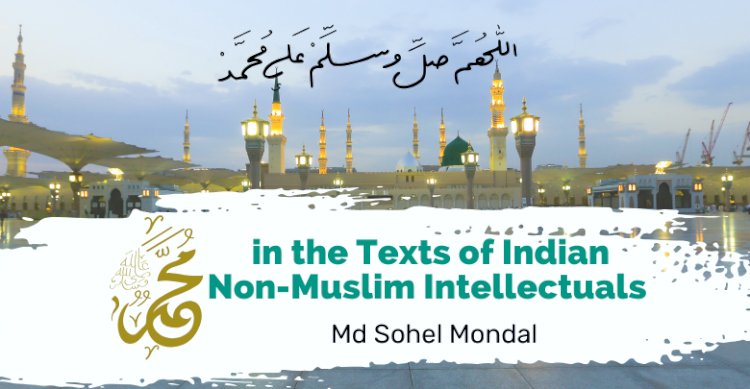


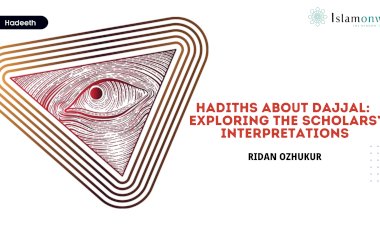
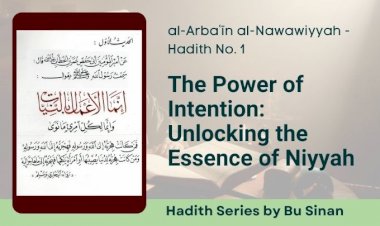
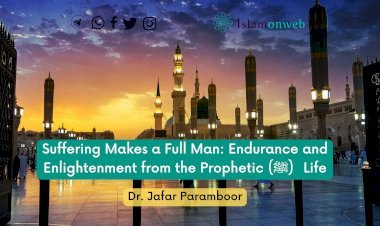
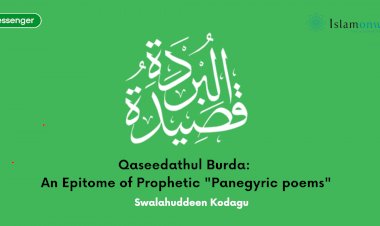
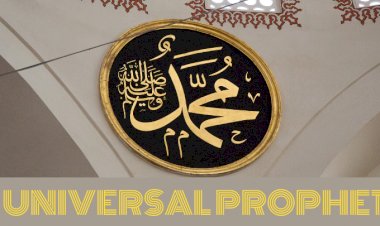
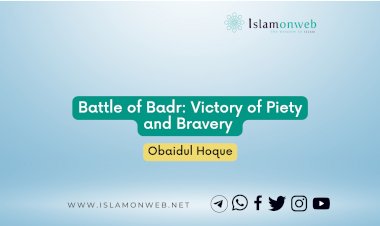














Leave A Comment